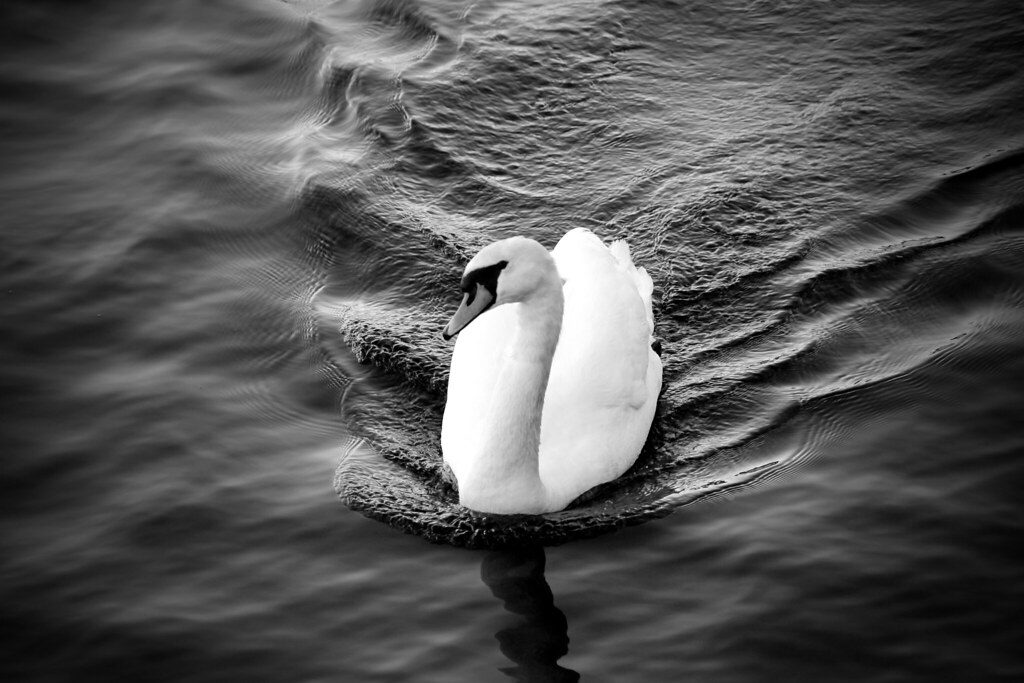
El Condor Pasa (If I could) [Simon &Garfunkel, first recorded, September 1970]
I’d rather be a sparrow than a snail
Yes I would, if I could, I surely would
I’d rather be a hammer than a nail
Yes I would, if I only could, I surely would
(Chorus)Away, I’d rather sail away
Like a swan that’s here and gone
A man gets tied up to the ground
He gives the world its saddest sound
Its saddest sound
I’d rather be a forest than a street
Yes I would, if I could, I surely would
I’d rather feel the earth beneath my feet
Yes I would, if I only could, I surely would
The word -‘Swan’.
“/swɒn/” I repeat to myself.
I taste it. Feeling the breath shaping itself into it.
What takes my breath away anew today as I suddenly hear this song eons after I heard it for the first time when I was a girl of 17?
The Bird vanishes into a sound that unexpectedly swings open a trapdoor beneath the feet. The sudden emergence of a hitherto-undreamt-of kind of reading/meaning.
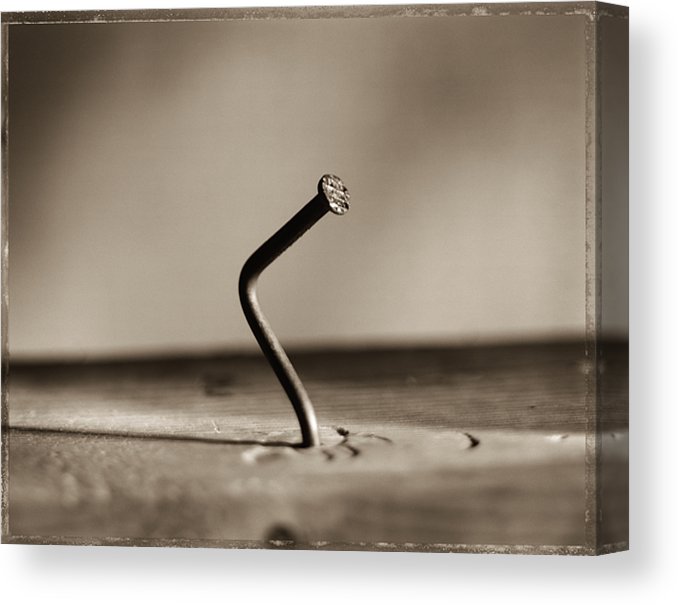
I, who, in listening, associated the Sparrow with desirable Dynamism over the Snail who is undesirable Slowness; the Forest, for desirable lyrical order amidst multiplicity over the undesirable man-made chaos of the Street; the Hammer, for its desirable energetic, forceful heroism over the undesirable Nail that suffers the hammering.
Today, I suddenly wake to this song in a completely different light.
Because for the first time I pay attention to the lines of the chorus that undercuts all that the song pretends to valorize.
In the abrupt silence, two subtle sets of sounds slowly rise to attention: one is the scarcely-attended- to lubdub-lubdub of my heartbeats; The other, even more, difficult to discern: the sound of my breathing.
Swan
Sohamsohamsoham: Sound as insight recorded as revealed to the Seers of Breath consisting of the twinned set of inspiration & expiration basic to Life .
Together the syllables can be read as ‘so’(inhalation)& ‘ham’(exhalation), that put together as ‘soham’ is also so+aham that in Sanskrit means THAT, I AM ( I AM THAT).
Read in a stretch, it can also be read as HAMSoham, (Hamsa So Aham meaning SWAN, I AM.
Swan.
A mystical entity associated with the gift/ virtue of Discernment in Indian Mythology.
An insight, coded as metaphor, which asserts that the Swan can separate Milk(Essence) from Water (or it’s dilution by extraneous elements).
They could never have meant the omnivore bird, Swan, of course.
What they possibly alluded to was that by centering on breath, most primary amongst the many gifts of embodied life, Clarity arises followed closely by Discernment.
Coming to the lines, let us start with- “I’d rather sail away…”
Why ‘rather’?
Maybe the singer is actually disinterested in the disjunctive –the Either/Or situation created when an act of choosing is called to be made?
Over being a Sparrow OR being a Snail;
Being a hammer OR Being a nail;
Being a Forest OR being a street:?
There is a gentle eschewal of the act of having to choose one pole of a dyad over the other that by its very form is designed to suffer the push-pull of the centrifugal energy; of its contrary with which it is inextricably bound.
The tension that engines an endless restless circle of Becoming.
Dead center??
Nay.

The Singer would rather “Sail away … Like a swan that’s here and gone…” than fall into the trap of agency, the doership that entails in the act of necessarily valorizing one pole of a dyad over the other in performing the act of choosing.
Neither as Inspiration, nor as Expiration but Dead Centre between the twinned and restless poles that are condemned to keep up their restless swinging from one end to the other and back again; Like the panic-stricken tongue of some manic, demonic bell that uncontrollably, endlessly peals and peals and peals …
He/ She would much rather: “Away, sail away…Like a Swan. that is here and gone…”
The evanescence of the Breath.
The Swan that is now, here and in the next, gone: In fact, It’s cessation.
That is but a manner of speech to indicate in the negative, an absence of movement.
A stillness and a silence that cannot be likened ever to the decaying physicality of a corpse but rather the end of the pendulum itself.
The tongueless Bell.
No Mind.
No Bell.
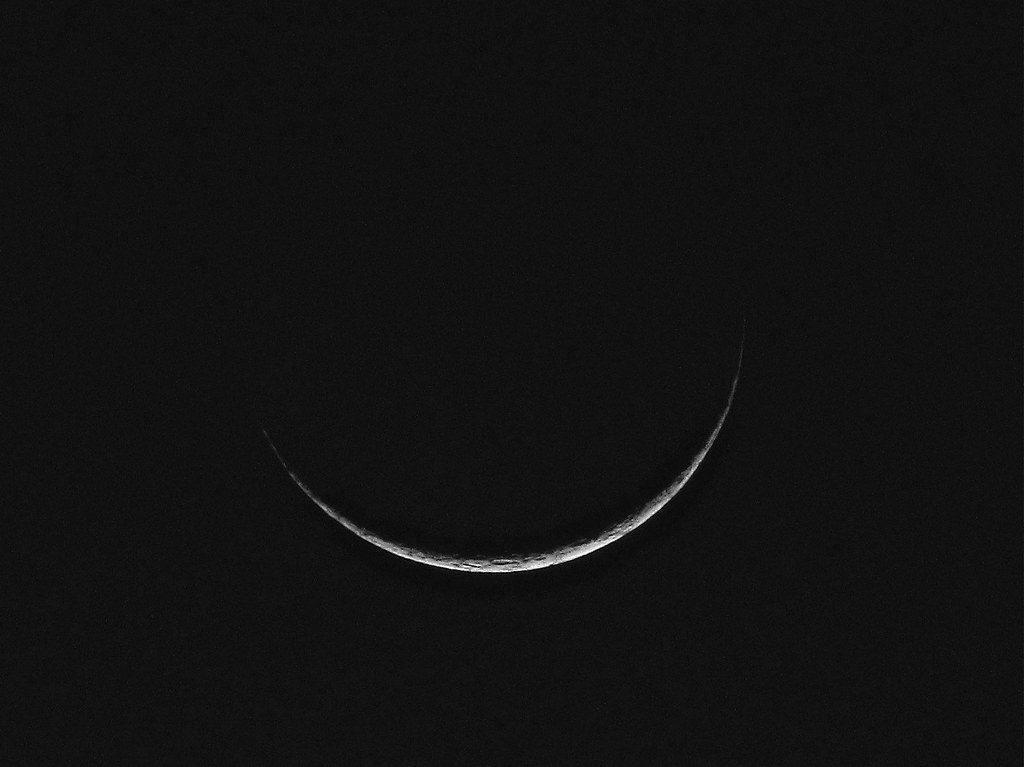
Which in effect is really the end of the Bell.
The Mind, silenced…
Where it stood, Space resounds with its Unstruck Sound.
The throbbing silence that the Koan indicates.
The edge up to where the best and the noblest of human language trajects us and then, with a subtle, allusive gesture to a space beyond the ken of the senses, turns right back around and rainbow-like, effaces itself.
It doesn’t end there.
What happens when one falls into the trap of donning this role of agency/the doer-ship entailed in the act of choice-making with its attendant latent tendency for a downward spiral into intolerance and violence?
“A Man /gets tied up to the ground/…”
This, the Singer describes quietly with the words:
Man falls and is tethered once more back upon the very ground from whose gravitational grip they sought their ascent.
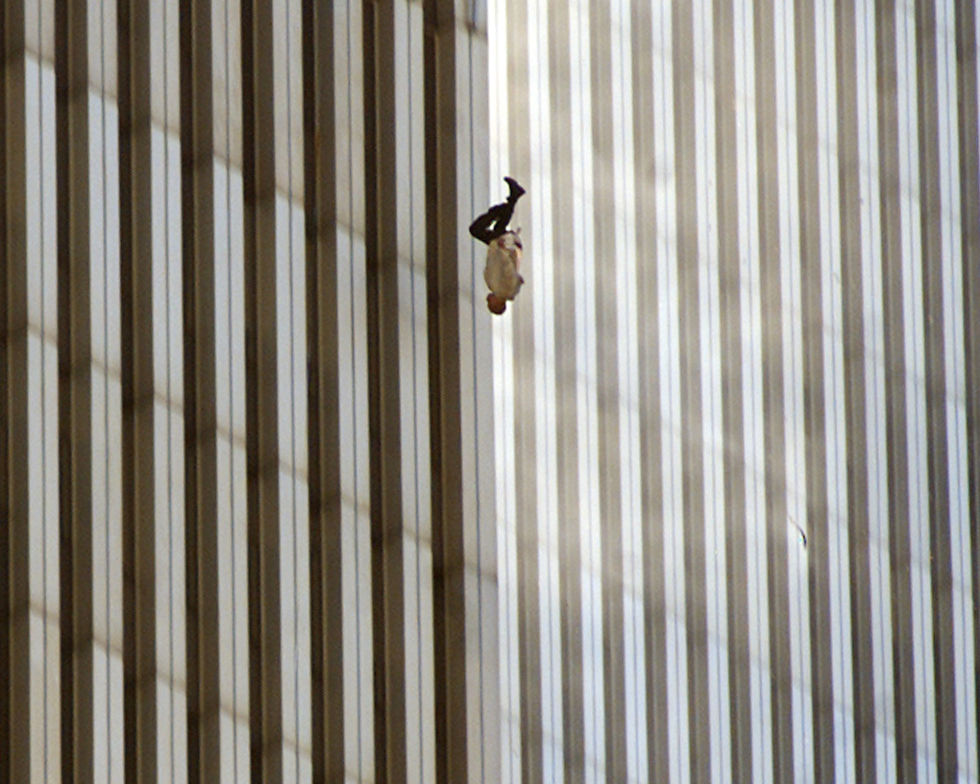
“He gives the world/ its saddest sound/ … its saddest sound.”
Here, in reiterating that last line, the depth of a certain profound & selfless cosmic grief reveals itself briefly.
Who grieves? Or rather What grieves?
For Whom? Or for What?
It is that Space, indicated earlier, to which language at its best can lead, point and then fall away as the flower’s last vestiges do from the burgeoning fruit.
A realm where the Tongue necessarily drops from the Bell.
Where the Bell ceases its existence and Sound becomes Silence.
And such Silence …?
Can it revert to/become ever … Sound?
Here the dyad ends.
No Negative
No Affirmative.
No Question
No Answer
Centre.
Alert, pulsing
Live Centre.
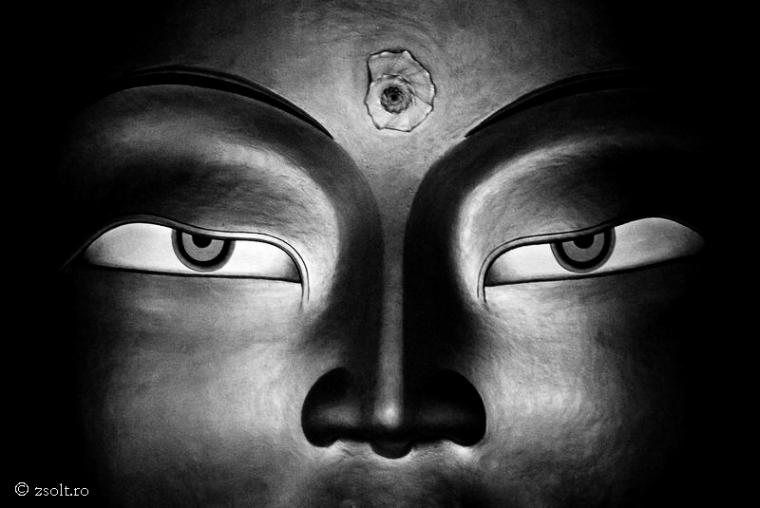
Leave a Reply